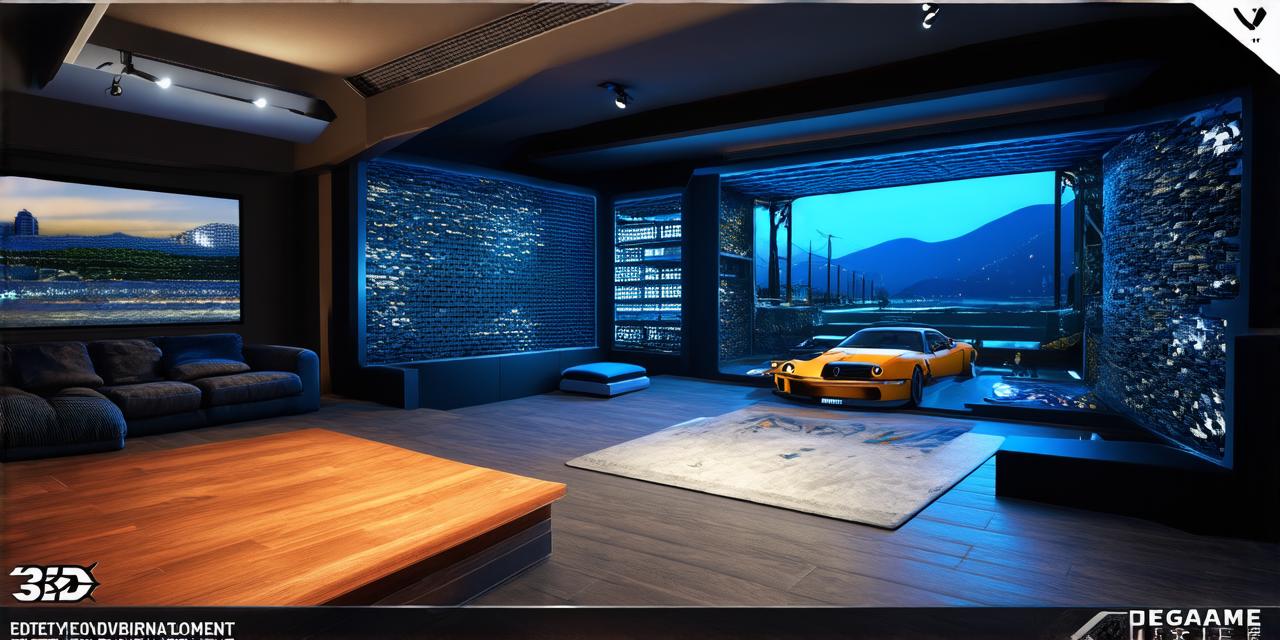As the world of video games continues to grow and evolve, so too does the technology used to create them. One such technology is Unity, a popular game engine that has gained traction in recent years due to its ease of use and versatility. In this article, we will explore Unity and determine whether it is the right choice for 3D game development.
First, let’s take a look at what Unity is and what it does. Unity is an open-source cross-platform game engine that allows developers to create games for various devices, including PC, mobile, consoles, and VR. It provides a wide range of tools and features that make it easy for developers to create high-quality games without needing extensive programming knowledge.
One of the key advantages of Unity is its cross-platform capabilities. With Unity, developers can create games once and deploy them across multiple devices, saving time and resources. This makes it an attractive option for indie developers who may not have the budget or manpower to create separate games for each platform. Unity also allows for easy customization of graphics and gameplay mechanics, making it ideal for developers looking to create unique and innovative experiences.

Another advantage of Unity is its large community of developers and creators. This community provides a wealth of resources, including tutorials, assets, and plugins, that can help developers get started quickly and easily. Additionally, Unity hosts an annual conference, Unity Connect, where developers can connect with each other, learn about the latest developments in the industry, and showcase their work. The community also offers support for developers through forums and online resources, making it easier to troubleshoot issues and find solutions.
However, there are also some potential drawbacks to using Unity. One of these is that it can be resource-intensive, especially when creating complex games with high-quality graphics and sound. This can make it difficult for smaller studios or individuals with limited hardware to run their games smoothly. Additionally, optimizing games for specific platforms, such as consoles or mobile devices, can be more challenging than other devices. While Unity provides tools to help with this, it can still be a challenge to ensure that the game runs smoothly and looks good on all devices.
Despite these potential drawbacks, there are many successful games that have been developed using Unity. For example, popular games like “PUBG” and “Monster Hunter: World” were both built using Unity. Additionally, many indie games have found success on the platform, thanks to its ease of use and cross-platform capabilities.
In conclusion, whether Unity is the right choice for 3D game development depends on a variety of factors, including the size and resources of the development team, the complexity of the game being created, and the target platforms. While there are potential drawbacks to using Unity, its ease of use, cross-platform capabilities, and large community make it an attractive option for many developers. Ultimately, the decision to use Unity or another engine will depend on a case-by-case basis, but for those looking to get started with game development quickly and easily, Unity is definitely worth considering.
FAQs:
1. Is Unity easy to learn?
Unity is designed to be user-friendly, making it relatively easy to learn for developers with little to no programming experience. However, there is still a learning curve, and more advanced features may require some additional knowledge. The ease of use of Unity makes it an attractive option for developers who are new to game development or who have limited programming experience.
2. Can I create games for consoles using Unity?
Yes, Unity supports game development for consoles, including the PlayStation 4 and Xbox One. However, optimizing games for console platforms can be more challenging than other devices, so it’s important to have the right tools and knowledge to ensure a smooth experience. Unity provides a range of tools and features specifically designed for console game development, including support for DirectX and OpenGL graphics APIs.
3. Is Unity free to use?
Unity is an open-source game engine, which means that it is free to use and modify. However, there are also paid versions of Unity available, such as Unity Pro, which offer additional features and support. The free version of Unity is suitable for most developers, but the paid version offers more advanced tools and features for larger studios or more complex projects.
4. Can I create VR games using Unity?
Yes, Unity supports the development of VR games for various devices, including the Oculus Rift and HTC Vive. Unity provides a range of tools and features specifically designed for VR game development, including support for VR controllers and stereoscopic displays.
